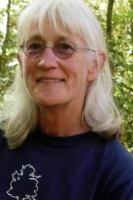O’Connell Writes ‘Time to Stop Climate Cancer’ in Op-Ed

Suzanne O’Connell, professor of earth and environmental sciences, faculty director of the McNair program, is the author of a new op-ed appearing on Inside Sources and The Hartford Courant, in which she urges aggressive action to counteract climate change.
O’Connell acknowledges the difficulty in communicating the urgency of climate change, and writes that one way she’s found to express this to her students is to liken climate change to cancer. That is, it is the rapid rate at which we are introducing greenhouse gases into the atmosphere—much like the accelerated rate of cell growth in cancer—that is so harmful.
She writes:
Cancer progresses at different rates in different patients and requires different treatments. Once diagnosed, however, aggressive measures are taken to stop the process. And the earlier treatment starts, the better the prognosis. Why aren’t we taking the same aggressive measures to limit our greenhouse-gas production? Because it’s too difficult or too costly? The same might be said for cancer treatment, yet most people take the aggressive option.
Maybe we are failing to take action because just as in the early stages of cancer, the early stages of global warming aren’t too obvious. Not yet. Few people, if any, wake up one morning knowing they have cancer. There are analyses and tests to be conducted first.
We’ve already done that work with regard to our climate, we have those analyses and tests. We know that air, land and ocean temperatures are rising. The warming ocean and melting ice contribute to sea level rise. Our wait-and-see attitude makes as much sense as waiting to see if the cancer spreads before undergoing treatment. What will a few degrees of warming do to a planet? To a human body?

